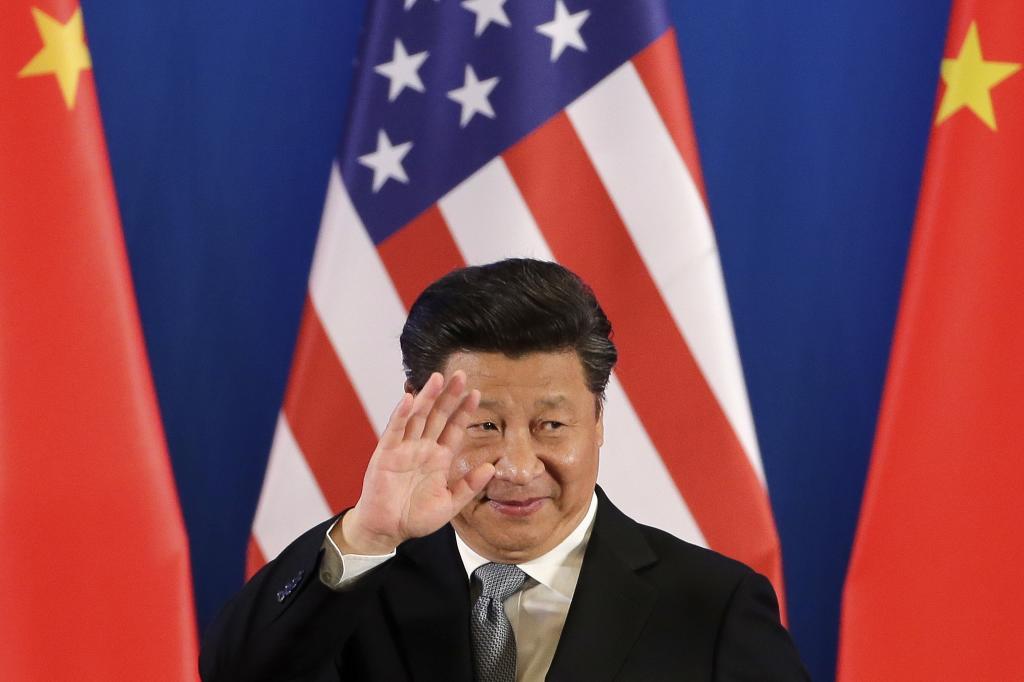Upon stepping into a bookstore in Shanghai promoted as "the first specializing in feminist literature," it is surprising to find a shelf dominated by books bearing the signature of China's President, Xi Jinping. Prominently displayed are his famous four volumes (The Governance of China) translated into 37 languages and distributed in 170 countries. These hefty tomes with over 500 pages compile many speeches, historical notes, and embellished bibliographic details of arguably the most powerful man in the world in terms of concentrated political authority in a single individual.
"Yes, we know, these works are not very feminist. Basically, they highlight the achievements of a man and his inner circle of collaborators, all also men," acknowledges one of the bookstore administrators. "A few months ago, after organizing several discussions with very assertive local female writers, several officials came to review the books we were selling. They said we could have problems because we were encouraging the breaking of established social rules and hinted that some works had not passed the scrutiny of the General Administration of Press and Publication (the censoring body that determines which books are appropriate for Chinese citizens to openly access). Since the officials said they would return for another review, we placed the entire collection of Xi Jinping's books at the entrance," she explains.
Brussels and Beijing's tug-of-war on the eve of a decisive summit for 50 years of diplomatic relations
Chinese propaganda channels claim that President Xi's "best sellers," which are mandatory study materials in both schools and universities, have been devoured by distinguished international figures like Mark Zuckerberg and Elon Musk, who wanted to delve into the successes of the Asian superpower by carefully studying the Marxist-Leninist worldview of the Chinese leader.
In these volumes, which in Spain would be equivalent to Pedro Sánchez's Resistance Manual, but with an even denser reading dominated by the neolanguage often used by Chinese leaders to explain simple things with unintelligible phrases, there are also many images of Xi's journey and some more personal notes.
Such as when it is explained that during the Cultural Revolution, this son of a revolutionary hero purged by Mao Zedong spent seven years sleeping on a bed made of bricks and clay inside a cave in Liangjiahe, a small village in the mountains of Shaanxi province, northern China. In 1974, when Xi began his political career, he was elected secretary of the Communist Party in that village, where he led the construction of wells to provide the villagers with running water and a large dam that would transform a vast mountainous area of arid land into productive fields. Today, in the restaurants of Liangjiahe, one of the cradles of patriotic tourism, a dish of pickled cabbage is offered bearing the president's name.
Xi Jinping's works beyond China
A few days ago, Xi's governance manuals were presented in Astana, the capital of Kazakhstan, at an event sponsored by the Minister of Culture of that country. In Kuala Lumpur, the capital of Malaysia, there was also another presentation of the works recently. And at this year's book fair in Tunisia, there was a booth dedicated to the writings of the Chinese leader.
In June, in Madrid, the China Chair Foundation, a think tank very close to Beijing dedicated to promoting relations with the Asian giant in Spain, organized a symposium to present the Spanish version of another work that compiles Xi's speeches on respect and protection of human rights. The event was attended by Yao Jing, China's ambassador to Spain, along with several Spanish academics. "This book offers readers a clear and rational lens through which to understand human rights practices in China, going beyond preconceived notions," noted Marta Montoro, the event's promoter.
Xi's literary work also includes a collection explaining the supreme leader's policies to lift millions of people out of extreme poverty, his anti-corruption campaign that has removed over one and a half million officials from all levels, and his ambitious Belt and Road Initiative, the vast global infrastructure financing program extended to over 150 countries.
To step out of the party's well-oiled propaganda machine, one can also find (though not in China, due to censorship) other books by Chinese and foreign authors that paint a more critical profile of the Chinese president. Kevin Rudd, former Prime Minister of Australia, published this year On Xi Jinping: How Xi's Marxist nationalism is shaping China and the world.
Rudd points out in his work that, since the early decades of the People's Republic of China with Mao Zedong, no one had concentrated as much power in China as the current president. Xi, in addition to being the General Secretary of the Communist Party (CCP), a political behemoth that last week announced it had surpassed 100 million members, also heads the military commission overseeing and commanding an army of over one and a half million personnel.
Rudd recalls that, after removing presidential term limits, Xi broke an unofficial rule in 2022 regarding leaders retiring at 68 years old. Surrounded by a team of loyalists, the extreme cult of his personality has solidified with an ideology, socialism with Chinese characteristics, reflected in his works. His sobriety leaves no room for improvisation: he has not given interviews for over a decade, does not participate in press conferences, and has no communication team.
